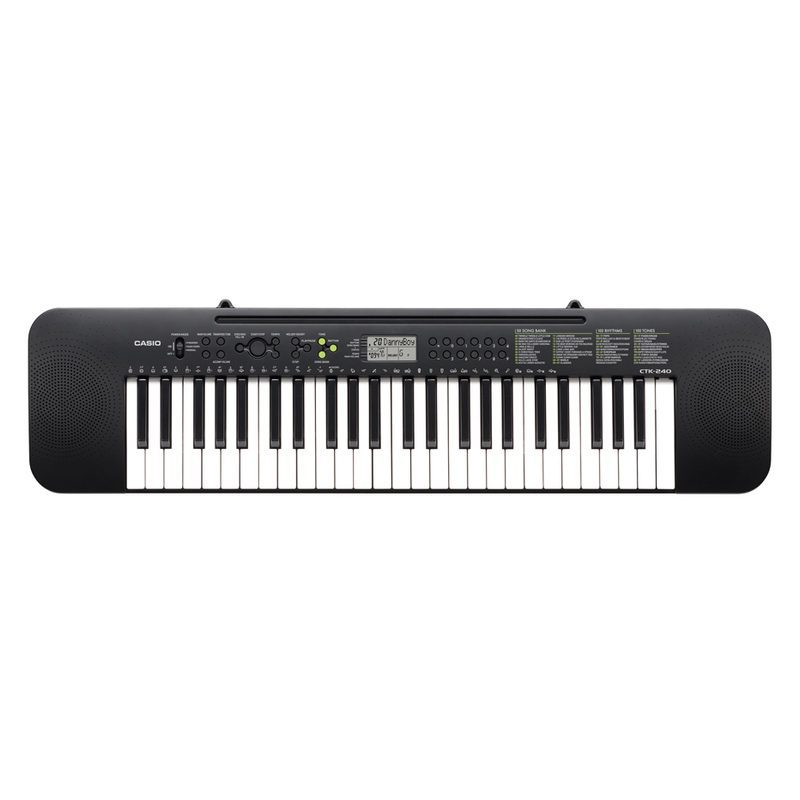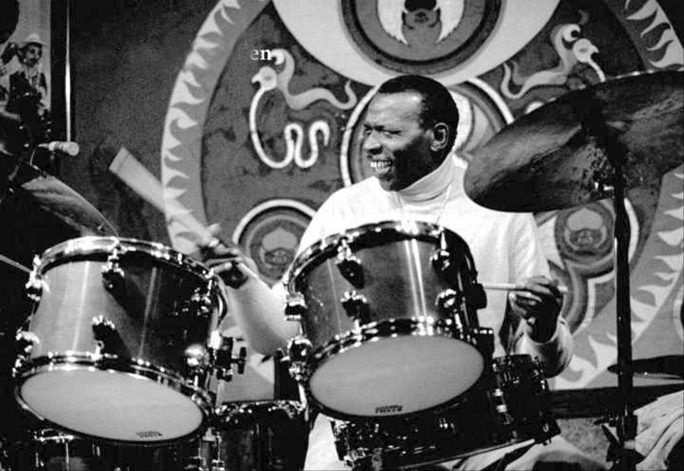
Best Deals On Clearance Sale Musical Instruments
Looking to strike a harmonious chord between your love for music and your budget? You’re in luck! The much-anticipated Clearance Sale on Musical Instruments by

You might be debating between an electronic keyboard and an acoustic piano if you’re trying to learn how to play the piano. The best instrument for you will depend on your specific demands and tastes as both types of instruments have benefits and drawbacks. We’ll examine the fundamental distinctions between electronic keyboards and acoustic pianos in this post to help you decide which is best for you.
Before diving into the comparison, it’s important to understand what electronic keyboards and acoustic pianos are. An electronic keyboard is a digital instrument that uses electronic circuits to produce sound. It typically has 88 keys like an acoustic piano, but some models may have fewer. On the other hand, an acoustic piano is a traditional instrument that uses strings and hammers to produce sound. It also has 88 keys but may be available in different sizes and styles.
The sound quality of electronic keyboards and acoustic pianos is one of the biggest distinctions between them. Even though some expensive electronic keyboards may create sounds of a high calibre, they fall short of the full, warm, and authentic sound of an acoustic piano. The sound of an acoustic piano is generated by physical strings, which resonate and produce a unique timbre that is difficult to replicate digitally.
Winner: Acoustic Piano
The touch and feel of a piano are crucial to playing and learning the instrument. Acoustic pianos typically have weighted keys that provide resistance, allowing for more precise control and expression. The keys are also wider and longer, making it easier to play complex pieces. Electronic keyboards, on the other hand, may have weighted or semi-weighted keys, but they lack the same level of responsiveness and tactile feedback as an acoustic piano.
Winner: Acoustic Piano
If you plan to move your instrument frequently or need to travel with it, portability is an essential factor to consider. Electronic keyboards are generally more portable than acoustic pianos, as they are lightweight and compact. Some models are even designed to be portable, with built-in speakers and batteries. Acoustic pianos, on the other hand, are heavy and bulky, making them difficult to move around without professional help.
Winner: Electronic Keyboard
Price is another significant factor to consider when choosing between an electronic keyboard and an acoustic piano. Electronic keyboards are generally less expensive than acoustic pianos, with entry-level models starting at a few hundred dollars. Acoustic pianos, on the other hand, can cost several thousand dollars, with grand pianos costing even more.
Winner: Electronic Keyboard
Versatility
Electronic keyboards come with a variety of settings and features that might improve your playing. They frequently have integrated rhythms, sound effects, and accompaniments that allow you to experiment with various styles and genres. Some models also have recording and playback capabilities, allowing you to save and listen to your performances. Acoustic pianos, on the other hand, have limited versatility and cannot be easily customized or adjusted.
Winner: Electronic Keyboard
Both electronic keyboards and acoustic pianos require maintenance and upkeep to ensure that they are in good working condition. Electronic keyboards are generally easier to maintain, as they do not require tuning or regular servicing. On the flip side, acoustic pianos need frequent tuning and upkeep, which can be pricey and time-consuming. However, acoustic pianos tend to last longer and have a higher resale value than electronic keyboards.
Winner: Tie
If you’re just starting to learn the piano, an electronic keyboard may offer more learning and practice features to help you improve your skills. Some models come with interactive lessons, tutorials, and games that make learning fun and engaging. They also have headphone jacks, which allow you to practice quietly without disturbing others. Acoustic pianos, on the other hand, have limited learning and practice features, although they do offer a more authentic and immersive playing experience.
Winner: Electronic Keyboard
The look and design of your piano can also be an important factor to consider, especially if you’re buying it for your home or studio. Acoustic pianos are often considered more aesthetically pleasing and have a timeless elegance that can enhance the decor of any room. Electronic keyboards, on the other hand, may look more modern and sleek, but they lack the same level of elegance and sophistication as an acoustic piano.
Winner: Acoustic Piano
The size and space required for your piano can also be a significant factor to consider, especially if you have limited space in your home or studio. Electronic keyboards are generally smaller and more compact than acoustic pianos, making them easier to fit in tight spaces. They can also be folded and stored away when not in use. Acoustic pianos, on the other hand, are larger and require more space, making them better suited for spacious rooms or dedicated music studios.
Winner: Electronic Keyboard
The noise level of your piano can also be an important factor to consider, especially if you live in an apartment or have neighbours who are sensitive to noise. Electronic keyboards are generally quieter than acoustic pianos, as they have volume controls and headphone jacks that allow you to practice quietly without disturbing others. Acoustic pianos, on the other hand, can be quite loud, especially if you’re playing with passion or enthusiasm.
Winner: Electronic Keyboard
If you’re interested in recording your performances or experimenting with different sound effects, an electronic keyboard may offer more options than an acoustic piano. Many models have built-in recording and playback features, as well as a variety of sound effects and filters that allow you to customize your sound. Acoustic pianos, on the other hand, have limited recording and sound effects capabilities, although you can mic them up to record your performances.
Winner: Electronic Keyboard
The durability and lifespan of your piano can also be an important factor to consider, especially if you’re planning to invest in a high-quality instrument. Electronic keyboards are generally less durable than acoustic pianos, as they are made of plastic and can break or malfunction more easily. Acoustic pianos, on the other hand, are built to last and can often be passed down from generation to generation with proper care and maintenance.
Winner: Acoustic Piano
Finally, it’s important to consider the environmental impact of your piano. Electronic keyboards are generally more environmentally friendly than acoustic pianos, as they don’t require the cutting down of trees to produce the wood and other materials used in their construction. They also consume less energy than acoustic pianos, as they don’t require tuning or other maintenance. However, electronic keyboards do require the use of batteries and other electronic components, which can contribute to e-waste.
Winner: Electronic Keyboard
In the end, both electronic keyboards and acoustic pianos have their pros and cons, and which one is best for you will depend on your personal preferences, playing style, and budget. If you’re a beginner or looking for a more portable and versatile instrument, an electronic keyboard may be the way to go. On the other hand, if you’re a serious pianist looking for a more authentic and immersive playing experience, an acoustic piano may be the better choice.
Ultimately, the decision between an electronic keyboard and an acoustic piano comes down to your individual needs and preferences. No matter which option you choose, be sure to take the time to research different models and brands, and to test them out in person if possible, to ensure that you find the best instrument for your needs and budget.
Are electronic keyboards good for beginners?
Yes, electronic keyboards can be a great option for beginners, as they often come with learning and practice features that can help you improve your skills. If you are looking to buy an electronic keyboard check out our other article for more tips and advice.
How often do acoustic pianos need to be tuned?
Acoustic pianos should be tuned at least once a year, although some professionals recommend tuning every six months.
Can electronic keyboards replicate the sound of an acoustic piano?
Many modern electronic keyboards use advanced sound sampling technology to replicate the sound of an acoustic piano, although the quality can vary depending on the model and brand.
How much do electronic keyboards cost?
The price of electronic keyboards can vary widely depending on the model and brand, but you can expect to pay anywhere from £100 to £3000 or more.
What should I look for when buying a piano?
When buying a piano, you should consider factors such as sound quality, touch sensitivity, size and space requirements, durability, and your personal preferences and playing style.

Looking to strike a harmonious chord between your love for music and your budget? You’re in luck! The much-anticipated Clearance Sale on Musical Instruments by

What Famous Drummers! The world has never been short of famous drummers. Since the birth of drums in 5500 B.C. mankind has been banging to
The Music Rooms is the UK and Northern Ireland’s #1 spot for Music Tuition, Musical Instruments and Music Equipment Sales.
Unit 19 Antrim Business Park
Enakalon
Antrim
BT41 4LD
5-7 Church Street
Ballymena
Co. Antrim
BT43 6DD
21 New Row
Coleraine
County Londonderry
BT52 1AD